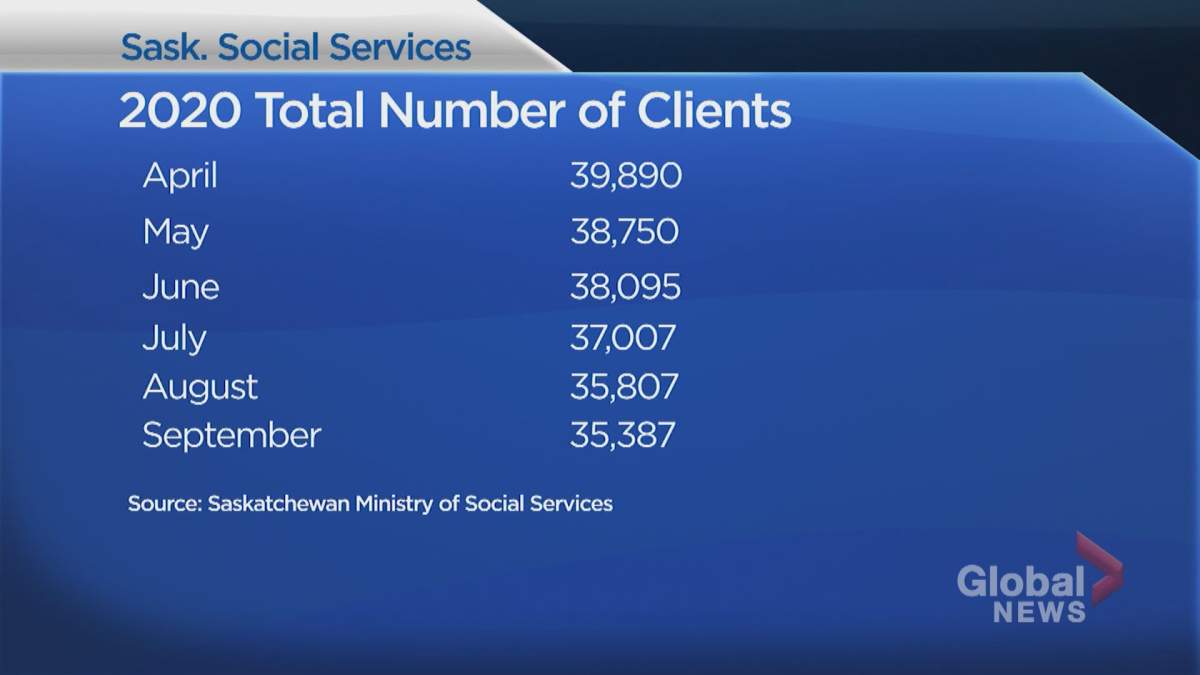The Saskatchewan Ministry of Social Services says some clients had income assistance withheld, and files potentially lapse, if they have accessed the Canadian Emergency Response Benefit (CERB) during the COVID-19 pandemic.

Doris Morrow, the executive director of income assistance with the ministry, told Global News in an email it was contingent upon the amount of money received.
“If an income assistance client had CERB income, and it exceeded the benefits provided by the ministry, the ministry placed that client’s income assistance benefits on hold,” Morrow said.
“The client’s file was kept open for 60 days. After 60 days, they can apply for the Saskatchewan Income Support or Saskatchewan Assured Income for Disability program if they do not have the means to provide for their basic needs.”
Morrow couldn’t say how many files were closed strictly due to CERB overlap, because there’s a number of reasons files can be placed on hold.
According to the ministry, that includes “finding employment and no longer needing income support, becoming eligible for other sources of income including CERB that provide for their needs, or moving away.”

Get daily National news
Between April and September 2020 inclusive, the total number of households receiving any kind of income assistance from the province declined overall by 4,503.
The ministry said it’s typical to see fluctuations in the overall number of households in receipt of income assistance benefits.
That can be caused by seasonal employment or educational opportunities, as well as changes in the labour market and economy.
Saskatchewan was also among the minority of provinces clawing back the full CERB amount from anyone receiving provincial income support.
Miguel Sanchez, an associate professor in the faculty of social work at the University of Regina, said the province’s approach to social services, cutting off benefits or creating substantial overpayments, is punitive.
- Canadians say Puerto Vallarta a ‘war zone’ amid escalating violence
- As Carney heads to India, Canada seeks to revoke citizenship of 2008 Mumbai attack ‘mastermind’
- Vancouver airport ties Nexus outage to U.S. partial government shutdown
- What’s a Canadian firm under defence industrial strategy? It’s complicated
“We are further condemning this portion of the population to a very undignified, inhumane life,” Sanchez said.
He pointed to the example of British Columbia, Yukon and Northwest Territories exempting CERB from income assistance calculations.
“They can put food on their table. They can pay their bills, they can think about possibly going back to work and think about things other people take for granted,” he said.
Sanchez noted that how society views the provision of social services determines how much is afforded to people.
“Do we consider people deserving of these benefits? Do we consider them as undeserving?” he said.
“We see that there is a huge disparity in the way that people in social services — how much they’re allowed… and the amount of money other people think they ought to have.”











Comments
Want to discuss? Please read our Commenting Policy first.